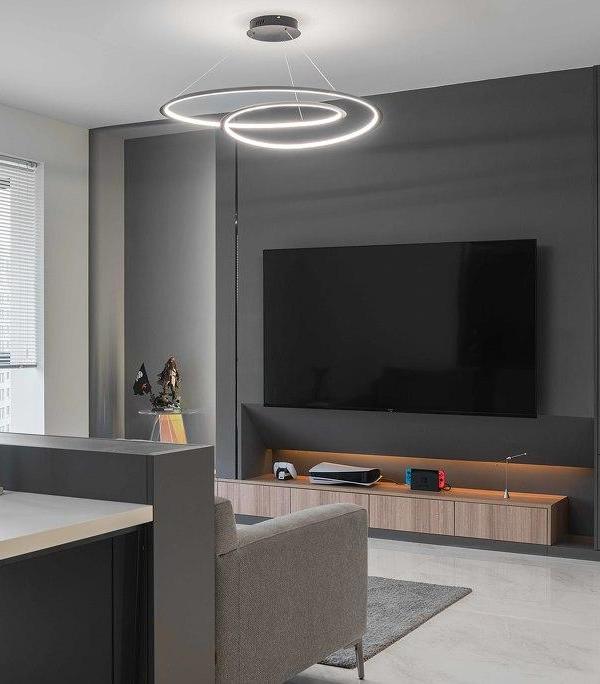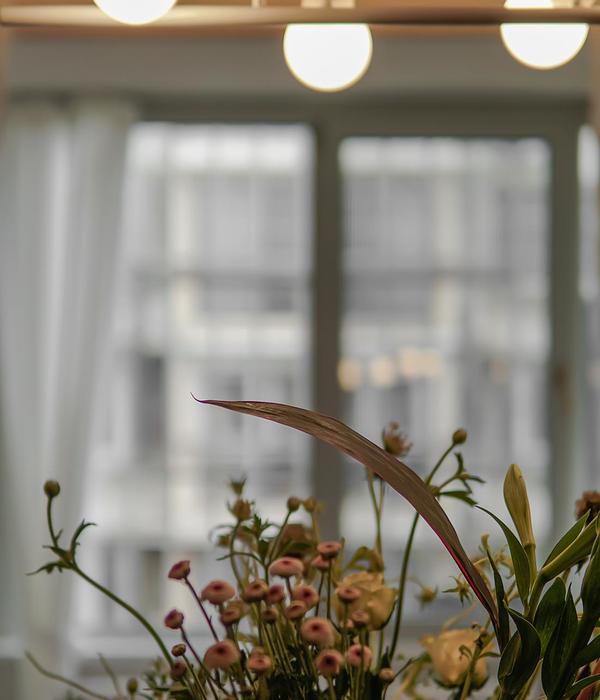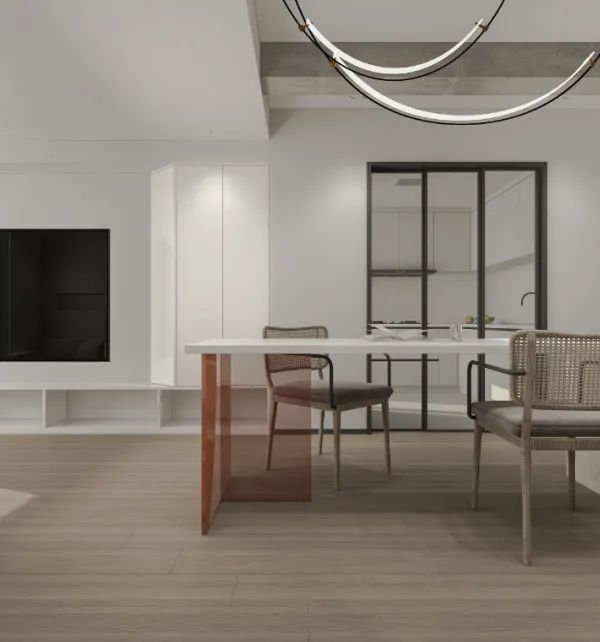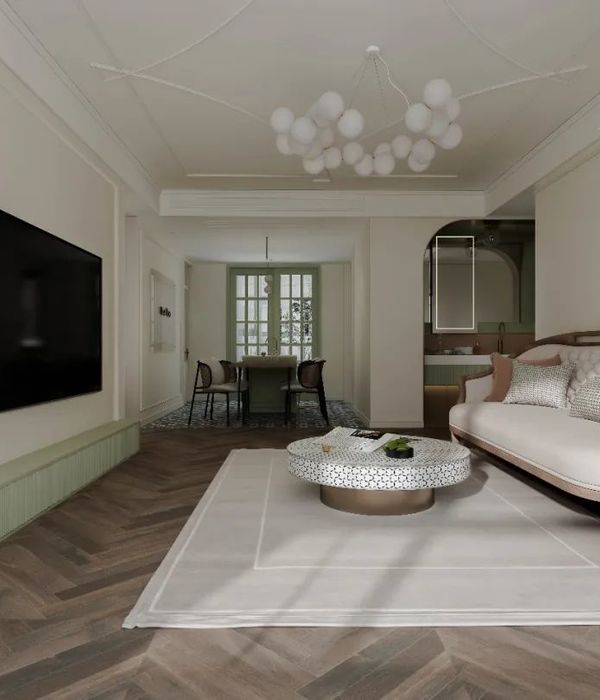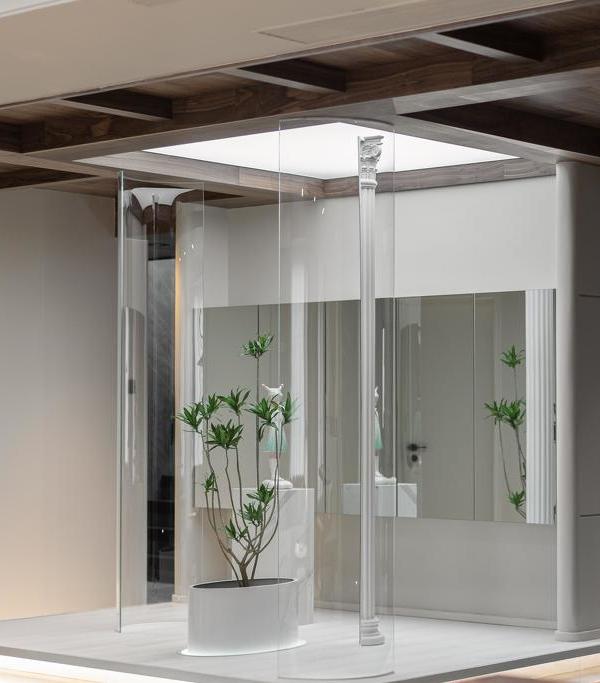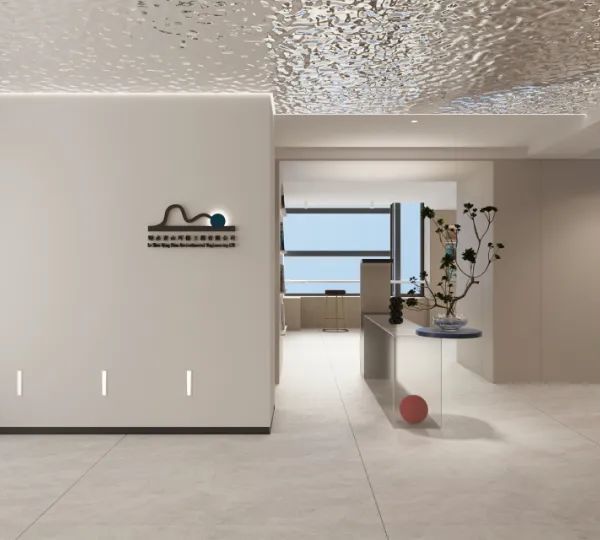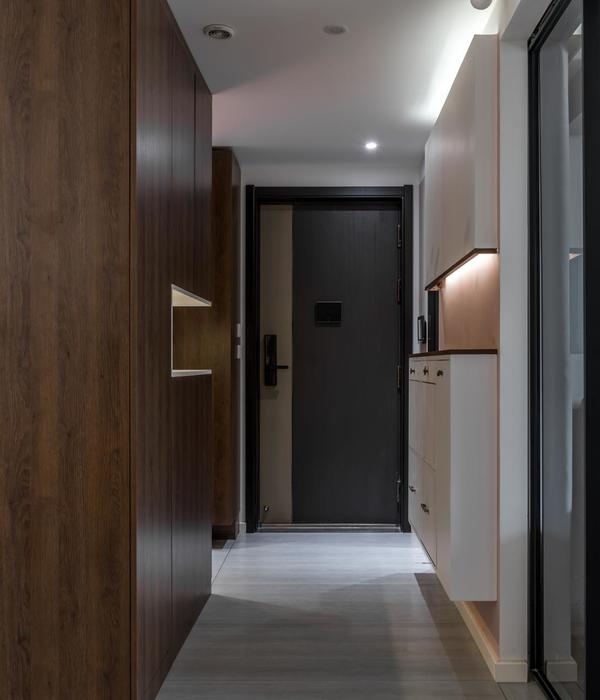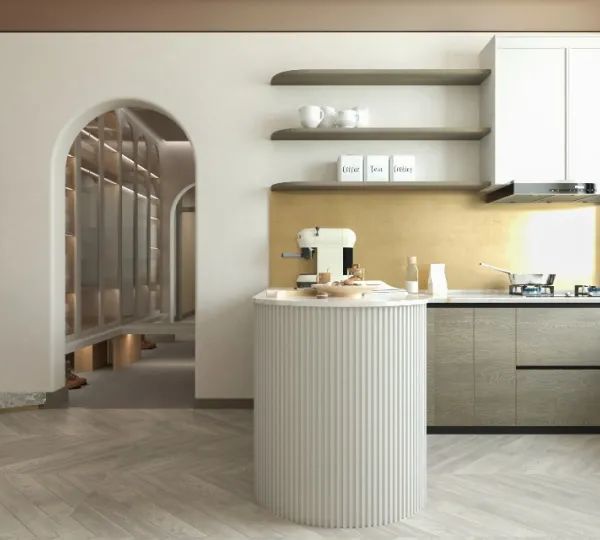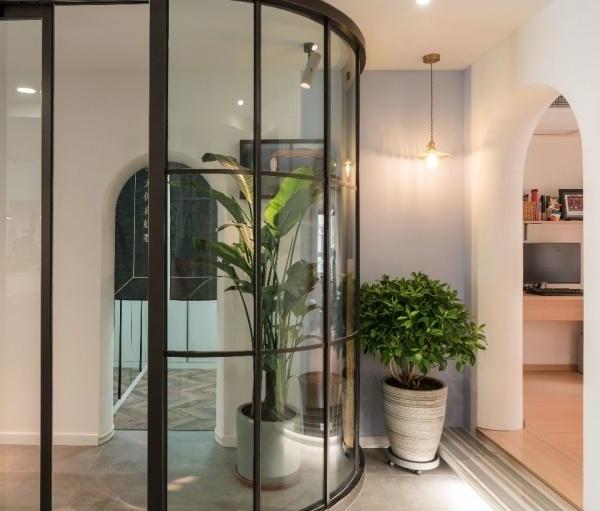位于芬兰中部P ij nne湖一个小岛上的S yn tsalo镇于1945年首次建立。几年后,该社区组织了一次建筑竞赛,以寻找一个市政厅的设计,以完成他们的新市政,到那时,那里是大约3000人的家园。市政综合体将包括一个议会会议厅、地方政府办公室、一个社区图书馆、工作人员公寓和零售空间,最终使市政厅的功能超出其原来的范围。
The town of Säynätsalo, located on a small island in central Finland’s Lake Päijänne, was first laid out in 1945. A few years later, the community organized an architectural competition to find a design for a town hall to complete their new municipality which was, by then, the home to around 3000 people. The civic complex was to comprise a council chamber, local government offices, a community library, staff apartments, and retail space that would ultimately allow the functions of the town hall to expand beyond their original parameters.[1]
Courtesy of Wittenborn & Company
维滕伯恩
Courtesy of Wittenborn & Company
维滕伯恩
阿尔托为该项目赢得的提案遵循了传统的欧洲法院和城市中心的模式。该建筑群由两座木框架砖建筑组成:矩形图书馆大楼和U形政府大楼。这两座建筑起到挡土墙的作用,使Aalto能够用从场地斜坡上挖掘出来的泥土填充中央庭院;因此,庭院被提升到周围景观上方一层。
Aalto’s winning proposal for the project follows the traditional European court-and-tower model of a civic center. The complex consists of two wood-framed brick buildings: the rectangular library block and the U-shaped government building. These two buildings act as a retaining wall that allowed Aalto to fill the central courtyard with earth excavated from the slope of the site; thus, the courtyard is lifted one story above the surrounding landscape.[2]
Courtesy of Wikimedia user Zache
维基媒体用户Zache提供
这种不同的海拔创造了两种对比的经验,建筑,取决于一个是在院子里还是从外面观察。在院子里,周围图书馆和办公空间的立面只有一层高;然而,外面的观察者却看到了一个气势磅礴的两层立面,其中大部分是一块整体的、没有装饰的砖块。[3]从地面通向院子的两道楼梯在风格上也是不同的。东部的楼梯是正式的,直线的,有两层刻有无可挑剔的花岗岩。西部楼梯的脚印更不规则,不是用石头或砖块做的,而是用木板支撑的梯田。
This difference in elevations creates two contrasting experiences of the building, depending on whether one is inside the courtyard or observing from outside. Inside the courtyard, the facades of the surrounding library and office spaces are only one story tall; however, outside observers instead see an imposing two-story facade, much of which is monolithic, unornamented brick.[3] The two staircases leading up to the courtyard from ground level are likewise divergent in style. The eastern staircase is formal and rectilinear, with two flights carved from impeccably hewn granite. The western staircase has a more irregular footprint, and is made not of stone or brick but of terraced sod held back by wooden planks.[4]
Courtesy of Wikimedia user Zache
维基媒体用户Zache提供
庭院本身只是部分铺设,继续由两个楼梯开始的砖和草并置。市政厅和公共图书馆的入口处通往庭院,不仅可以作为开放的循环空间,而且还可以作为一个公共广场,造福整个城镇。大门门厅和走廊两侧的入口门厅和走廊的大玻璃窗,提高了公众的无障碍感。这些空间的渗透性与市政厅最突出的特征形成鲜明对比:市政厅。
The courtyard itself is only partially paved, continuing the juxtaposition of brick and grass begun by the two staircases. The entrances to the civic offices and the public library open onto the courtyard, allowing it to serve not only as an open circulatory space, but also as a public plaza for the benefit of the entire town. The sense of public accessibility is heightened by the extensive glazing of the entrance lobby and corridor lining two sides of the courtyard. The permeability of these spaces makes for a stark contrast with the most prominent feature of the town hall: the council chamber.[5]
Courtesy of Flickr user Leon
Flickr用户Leon提供
从玻璃走廊正对面,从同样明亮和通风的入口大厅分支,是一个更黑暗,更狭窄的楼梯井内衬砖。这条通往议会会议厅的楼梯,在半途降落时,会向后转,使大厅无法看到大厅;楼梯井也因其朝东的牧师窗口而被遮挡在外部视野之外。
Directly across from the glazed corridor, branching off the equally bright and airy entrance hall, is a darker more narrow stairwell lined with brick. This staircase, which leads to the council chamber, turns back on itself at a landing halfway up, shielding the chamber from view of the lobby; the stairwell is also hidden from exterior view thanks to its east-facing clerestory windows.[6]
Courtesy of Flickr user Jonathan Rieke
Flickr用户Jonathan Rieke提供
进入议会会议厅,一个人进入比通往它的楼梯更大的空间。房间大致是立方的,从地板到天花板的距离几乎与墙壁的长度相当。天花板的坡度与屋顶的斜率相当,显然是由两根中央梁扇出的木柱支撑的;这些支柱完全支撑屋顶,省去了沉重的内置框架的需要,因为这会阻碍屋顶内外表面的通风。[7]理事会会议厅自然是由一扇密闭的西面窗户照亮的,其下面的桌子和上面的木桁架都有挂灯照明。
Entry into the council chamber brings one into space of a much grander scale than that of the stairway leading to it. The room is roughly cubic, with the distance from floor to ceiling nearly matching the length of the walls. The ceiling, whose slope matches that of the roof, is visibly supported by wooden struts fanning out from two central beams; these struts support the roof entirely, negating the need for heavy built-in framing that would obstruct ventilation between the interior and exterior surfaces of the roof.[7] The council chamber is naturally lit by a densely-louvered west-facing window, with hanging lamps illuminating both the desks below and the wooden trusses above them.[8]
Courtesy of Wittenborn & Company
维滕伯恩
当Aalto向S yn tsalo人民提出他的设计时,引起争议最大的是议会会议厅。负责这座建筑的市政委员会成员不相信像他们这样小的城镇有理由建造一个17米高的议会会议厅,特别是考虑到为该项目指定的砖头价格很高。然而,据报道,阿尔托回答说:“先生们!世界上最美丽、最著名的市政厅锡耶纳市政厅高16米。我建议我们建造一个17米长的。“
It was the council chamber that provoked the most controversy when Aalto proposed his design to the people of Säynätsalo. The municipal board members in charge of the building were unconvinced that a town as small as theirs could justify the construction of a 17-meter tall council chamber, especially given the high price of the brick specified for the project. Aalto, however, reportedly replied “Gentlemen! The world’s most beautiful and most famous town hall, that of Siena, has a council chamber 16 meters high. I propose we build one that is 17 meters.”[9]
Courtesy of Wittenborn & Company
维滕伯恩
阿尔托对董事会成员的呼吁并不是他的项目中唯一提到历史先例的方面。尽管其现代主义美学,S yntsalo市政厅受到文艺复兴和中世纪意大利建筑的严重影响。这座塔不仅暗示着它在锡耶纳的对立面,还与下面的庭院布局相结合,同时也代表了威尼斯的圣马可广场(PiazzaSanMarco)等先行者。面向中心广场的图书馆和市政项目也反映了贝尔加莫市Vecchia广场的类似安排。[10]较小的细节也归功于意大利:广场的梯田土质楼梯也是以意大利模式为基础的。
Aalto’s appeal to the board members wasn’t the only aspect of his project that made reference to historical precedents. Despite its Modernist aesthetic, Säynätsalo Town Hall has been heavily influenced by Renaissance and Medieval Italian architecture. The tower does not only allude to its counterpart in Siena; combined with the courtyard arrangement below, but also antecedents like Piazza San Marco in Venice, as well. The library and civic programs facing onto a central square mirror a similar arrangement in the Piazza Vecchia of Bergamo.[10] Smaller details also owe their inspiration to Italy: the terraced earthen stairs to the plaza are also based on an Italian model.[11]
Piazza San Marco, Venice, Italy.. Image Courtesy of Flickr user Scott Ingram
意大利威尼斯圣马可广场。Flickr用户ScottIngram的图像礼貌
Piazza Vecchia, Bergamo, Italy.. Image Courtesy of Flickr user Bas Wallet
意大利Bergamo Vecchia广场。Flickr用户Bas Wallet的图像礼貌
S yn tsalo市政厅进行了重要的修复工作,这项工作始于1995年。1993年,S yn tsalo市成为Jyv skyl市的一部分,其市政厅在次年成为一个受法律保护的地标。修复保留了建筑的原始形式和材料;只有损坏的部件被替换,碎片只是由于时间的原因而被风化。这项工作是在1998年阿尔瓦·阿尔托百岁生日的时候完成的,他把自己的公民中心留给未来几代人去参观和欣赏。
Säynätsalo Town Hall underwent significant restoration work, which began in 1995. Säynätsalo municipality had become a part of the city of Jyväskylä in 1993, with its town hall becoming a legally-protected landmark the following year. The restoration preserved the building in its original form and materials as much as possible; only damaged components were replaced, with pieces simply weathered by time left as they were. The work was completed in time for Alvar Aalto’s hundredth birthday in 1998, preserving his civic center for generations of the future to visit and admire.[12]
[1]弗莱格,卡尔。阿尔瓦·阿尔托。纽约:维滕伯恩
地点40900 S yn tsalo,芬兰类别零售建筑师,主管Alvar Aalto项目年1949年,拍摄Fernanda Castro
Location 40900 Säynätsalo, Finland Category Retail Architect in Charge Alvar Aalto Project Year 1949 Photographs Fernanda Castro
{{item.text_origin}}

